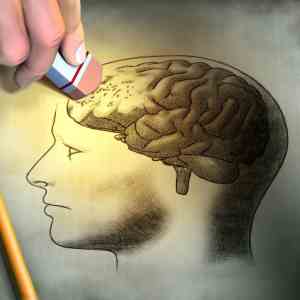

MedFriendly®


Post-Traumatic Amnesia (PTA)
Post-traumatic amnesia (PTA) is an inability to form
consistent day-to-day memories due to traumatic brain
injury. If a healthcare provider says that someone is "in
PTA" he/she means that the person is still in a state in
which consistent day-to-day memories cannot be
formed. PTA ends when the person's ability to form day-
to-day memories is restored. PTA is brief after mild
traumatic brain injuries (concussion) and longer after
moderate to severe traumatic brain injuries. PTA also
refers to a memory loss or disturbance due to hysteria
(loss or alteration of physical functioning due to
psychological reasons) or dissociative disorders (mental
disorders in which there is a disturbance of identity, level
of alertness, and memory, often due to trauma).
FEATURED BOOK: The Memory Book: Classic Guide to Improving Your Memory
PTA is also known as traumatic amnesia and is considered a form of anterograde
amnesia. Anterograde amnesia is a loss or disturbance of memory for events that occur
after a trauma, disease, or traumatic emotional event that caused the memory
disturbance. Compare PTA to retrograde amnesia, which is a loss or disturbance of
memory for events that occurred before a trauma, disease, or a traumatic emotional
event that caused the memory disturbance. Except in rare circumstances, the length of
PTA is longer than the length of retrograde amnesia.
"Where Medical Information is Easy to Understand"™
The word "post-traumatic" comes from the Latin word, "post," meaning "after", and the Greek word,
"trauma" meaning "wound." The word "amnesia" comes from the Greek word "a," meaning "without," and the
Greek word, "mnemonic," meaning "memory." Put the two words together and you have, "without memory."
Put all the words together and you have "without memory after the trauma."















